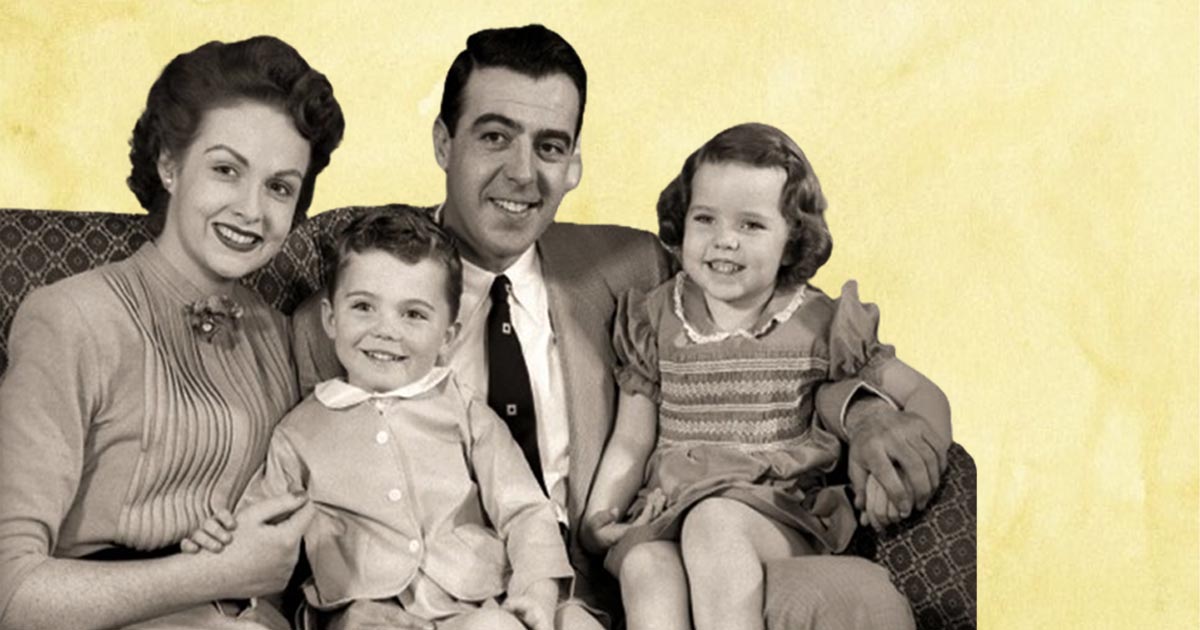Common perception of family is regarded as love, support, and belonging.
However, for some people, family dynamics are filled with tension, conflict, and emotional suffering. These can take the form of constant criticism and manipulation to emotional abuse and control.
This guide will cover signs of toxic family dynamics; how they can affect mental health; and what you should do about them – all backed up by useful strategies that work.
If you want to understand your difficult attachments better or just need someone else to validate what happened during Christmas dinner last year… You’ve come to the right place!
What Are Toxic Family Dynamics?
Toxic family dynamics are a group of negative interactions and behaviors within a family. Commonly, these include power struggles, communication patterns, and emotional manipulation among others that can greatly impact the well-being of a person.

Research conducted in psychology as well as family therapy points out the fact that toxic family dynamics have detrimental effects on mental health and general life satisfaction for individuals.
For example, studies show that living in toxic families that exhibit high levels of conflict, criticism or emotional abuse increases the chances of developing anxiety disorders among children and adults alike.
Furthermore, such unhealthy relationships may also lead to intergenerational cycles of dysfunction where people unknowingly repeat what they were taught during their childhood years while dealing with significant others.
Unresolved trauma or conflicts within families tend to keep these harmful ways alive over generations based on findings from various inquiries done into this matter.
Read More: What Are Family Dynamics? Is Your Family Dynamics Uplifting or Weighing You Down?
Signs of Toxic Family Dynamics You Should Know!
Identifying the signs of poisonous family dynamics is important to comprehend and take care of dysfunctions in a family system.

Here are some common signs of toxic family dynamics:
1. Absence of Respect:
Disrespect for one another within the toxic family dynamics can be seen as violating personal boundaries and individual autonomy.
They may not pay attention to any other person’s thoughts, feelings, or choices regularly which creates an environment where people feel invalidated and ignored.
This constant lack of respect destroys confidence in oneself and does not allow the development any healthy relationships between people causing anger and separation among them.
2. Constant Criticism:
In such families everything done by anyone else is never good enough thus they criticize anything and everything without stopping.
People who live in toxic families are constantly being judged but this only serves to lower self-esteem further while keeping up hostility around them since all things said about each other tend to be negative.
3. Manipulating and Controlling:
In bad family systems, they use manipulative tactics and control as weapons to establish power over others.

These individuals try to take charge of their relatives’ thoughts, feelings, and actions by means such as gaslighting, guilt-tripping, or emotional blackmail.
Such underhanded manipulation does not just destroy trust nor autonomy but also breeds dysfunction which then entraps people in lies while at the same time compelling them to act against their will.
4. Emotional Abuse:
Toxic environments are conducive for emotional abuse whereby people use offensive language, insults, or neglect so that they can hurt others while feeling superior. By doing this they destroy their victims’ mental health leading to long-term psychological problems for them too.
What makes emotional abuse so dangerous is its hidden nature; it creeps into one’s life without even realizing it which explains why many don’t know how to deal with such situations until much later in life when damage has already been done.
This perpetuates unhealthiness within families where everyone starts thinking that nobody loves them anymore because of what happened during their childhood days.
5. Dysfunctional Communication:
Communication in toxic families is broken; and characterized by defensiveness, avoidance, and hostility.
People fear being judged or attacked hence withholding their true selves from coming out thereby killing any chances of resolving conflicts amicably due to misunderstandings fueled by a lack of genuine expression.
As communication channels break down between siblings so does everything else – relationships die leaving members feeling empty inside having no idea what went wrong along the line somewhere somehow someone must have said something that was taken out of context resulting in a complete breakdown amongst themselves again.
Thus continuing with negative patterns forevermore unless somebody intervenes immediately otherwise there won’t be peace forevermore anywhere anyhow between them all ever again.
Until we learn how to identify these signs and respond appropriately to unhealthy family dynamics will we only then be able to foster beneficial care within our homes.
Read More: 10 Subtle Signs Your Family Hates You And How To Deal With Them!
10 Effective Ways to Deal with Toxic Family Dynamics
When dealing with nonstop negative comments, trying to figure out when people are being manipulative and handling emotional mistreatment the impact on someone’s mental health is huge.

Yet in the midst of all this there exists some effective ways that can help you take back control over your life and find inner peace.
Here are some ways to deal with toxic family dynamics:
1. Create Strong Boundaries:
Make clear statements about what is acceptable or unacceptable behavior for them when it comes to their unhealthy family members communication should be assertive but respectful. Consistency matters most here so reduce contact if need be or set stricter limits around interaction hours with toxic relatives.
2. Comprehensive Self-Care Should Come First:
In such situations where everything seems against personal growth; invest more time into taking care of yourself as a whole person within the context of difficult family dynamics.
Do things that lighten up your spirit like meditating, exercising regularly, and engaging in creative activities which may include painting or writing stories among others not forgetting to spend much of your socialization time with supportive friends who know you better than anybody else does.
3. Develop A Strong Support System Outside The Family Unit:
Try creating another strong backup system from people around as well besides those related by blood so that they can offer love, understanding validation plus guidance where required.
A best example would be seeking friends who will understand what one is going through participating in support groups and even considering professional therapy which will enable an individual to deal with emotions while equipping them with appropriate coping mechanisms based on their unique circumstances.
4. Be good at communicating:
Build and improve your skills in communication to deal with difficult people within the family. These may include toxic relatives or friends.
Develop such techniques as assertiveness in expressing feelings and needs, active listening, and conflict resolution to achieve mutual understanding and respect.
5. Establish healthy boundaries:
Know when it is necessary to set limits around oneself while dealing with bad relations from relatives who are not good for one’s well-being.
This can be done by reducing the frequency of contact, creating emotional or physical spaces between oneself and such people or even deciding not to attend important functions or holidays where they are likely to be present.
6. Let go of resentments and forgive:
Understand that harboring ill feelings towards members of your family who have caused you harm only serves to weigh down on one’s spirit; thus learn how to pardon them all together.
In addition, know that forgiving is a process through which we free ourselves from negative emotions rather than justifying wrongs done unto us by others especially those closest to our hearts.
7. Focus on Personal Growth:
Redirect your energy towards personal growth and fulfillment outside of toxic family dynamics. Invest in self-improvement, pursue passions and interests, and cultivate meaningful connections and experiences that enrich your life.
8. Know When to Let Go:
Recognize when toxic family relationships are irreparable or detrimental to your well-being, and be prepared to let go when necessary.
Trust your instincts and prioritize your mental and emotional health above maintaining unhealthy ties, knowing that liberation often precedes healing and growth.
Remember, you are not alone in dealing with toxic family dynamics. Reach out for support, prioritize self-care, and know that it’s okay to set boundaries and prioritize your own well-being.
By taking proactive steps to address toxic dynamics and investing in your personal growth and happiness, you can begin to break free from the cycle of dysfunction and create a more positive and fulfilling life for yourself.
Read More: 10 Harmful Excuses To Abuse By Toxic Parents! Watch Out
A Word From Mind Family
At Mind Family, we know the difficulties and problems that come with toxic family systems. We hope that through this article, you will find helpful information and tactics that could help you regain control over your life and stay mentally healthy while being around your relatives.
Coping with toxic family dynamics can be an uphill battle, but it is important to realize that many people have gone through similar challenges before. There are ways to deal with manipulation or emotional abuse; there are ways to overcome dysfunctional communication patterns.
Most importantly, please remember that you should always feel secure, respected and cared for – even when dealing with loved ones.
Taking positive actions towards one’s self-improvement and adopting self-care strategies may serve as a starting point for breaking free from negative cycles within families so as to make life better.
We are by your side no matter what happens. Stay strong! Stay tough! Better times will come soon enough.
Frequently Asked Questions (FAQs)
1. What Are Toxic Family Dynamics?
Toxic family dynamics encompass negative interactions and behaviors within a family, including power struggles, communication issues, and emotional manipulation, impacting members’ well-being.
2. What Are Signs of Toxic Family Dynamics?
Signs include lack of respect, constant criticism, manipulation, emotional abuse, and dysfunctional communication. Recognizing these signs is crucial for addressing dysfunction within families.
3. How Can I Deal with Toxic Family Dynamics?
Effective strategies include setting boundaries, prioritizing self-care, seeking support, mastering communication, creating distance, forgiveness, focusing on personal growth, and knowing when to let go.











